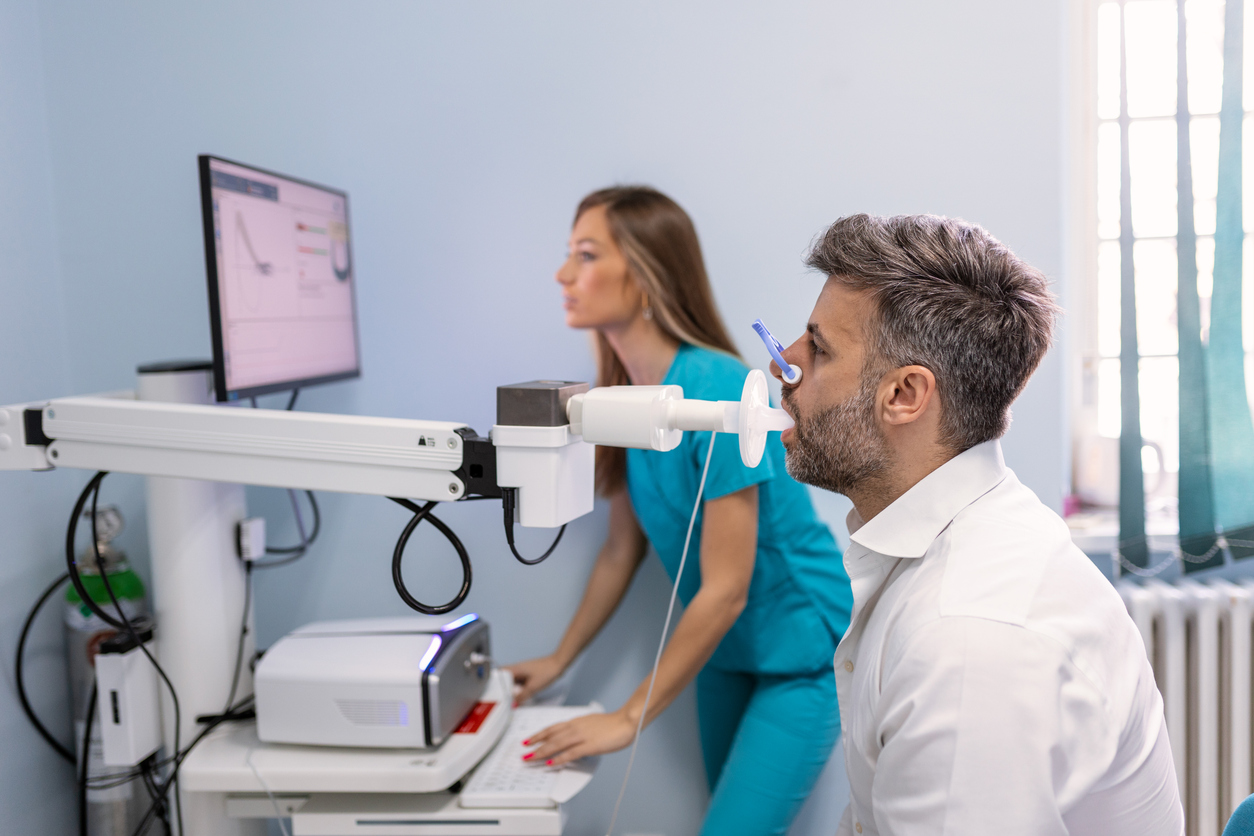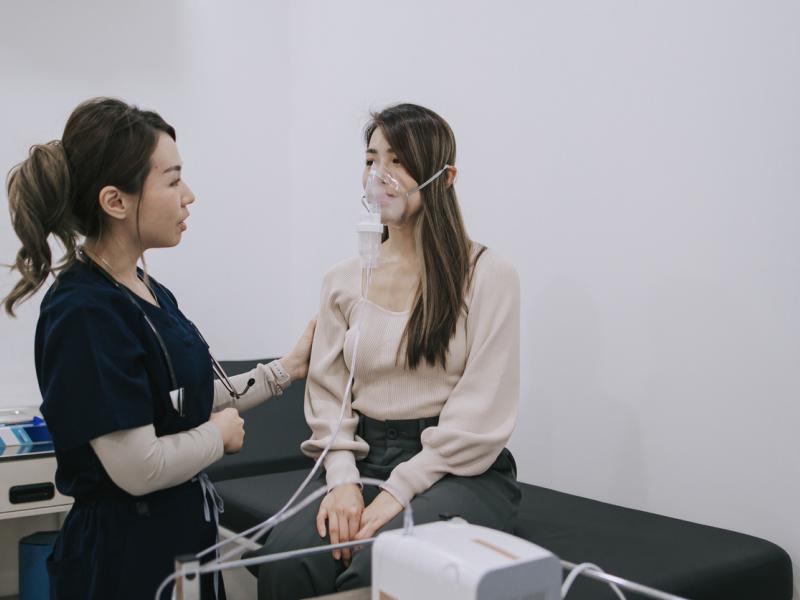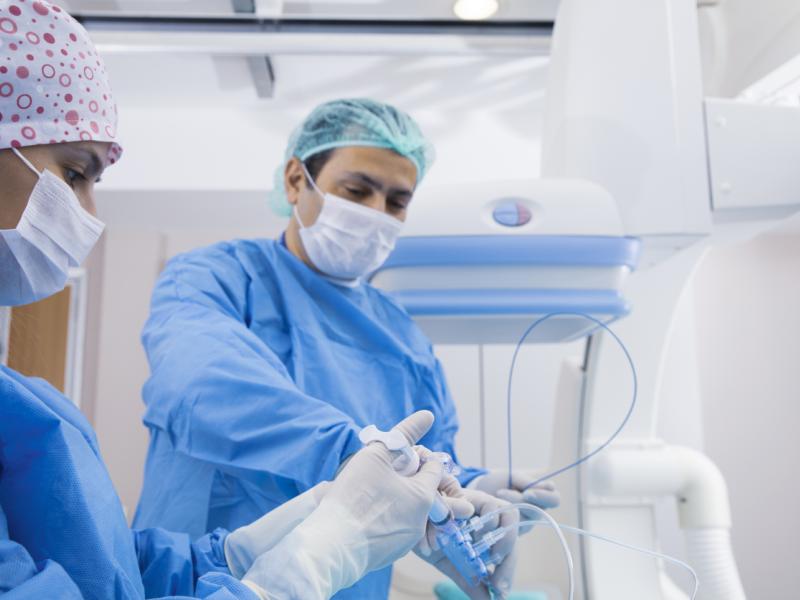Mouth taping is a practice that promotes nasal breathing during sleep, which may improve sleep...
Read More
Your lungs are vital to your overall health. At Inspira, we develop personalized treatment plans to ease COPD symptoms and improve lung function.
Chronic Obstructive Pulmonary Disease (COPD) is a progressive lung condition that encompasses several chronic respiratory diseases, including emphysema and chronic bronchitis. With COPD, the airways become obstructed or narrowed, making it increasingly difficult to breathe. Emphysema involves damage to the lungs' alveoli or air sacs, reducing their elasticity and ability to transfer oxygen into the bloodstream. Chronic bronchitis is characterized by inflammation and excess mucus production in the bronchial tubes, leading to coughing and difficulty clearing the airways.
While COPD is not curable, early diagnosis, treatment, and lifestyle adjustments can help you manage this condition, slow its progression, and maintain a fulfilling quality of life. COPD is categorized into four stages based on the severity of symptoms and lung function:
Living with COPD means navigating a range of symptoms that can disrupt daily life. Symptoms may include:
The primary risk factor for both emphysema and COPD is smoking, which is responsible for the majority of cases. Other shared risk factors include exposure to passive smoke, air pollution and occupational hazards such as chemical fumes or dust.
Risk factors specific to emphysema, including certain genetic factors and a deficiency in the protein alpha-1 antitrypsin, can also increase susceptibility to the condition.
In most cases, diagnosing COPD involves a thorough physical examination and a pulmonary function test (PFT) to assess lung function. In some cases, your doctor may recommend additional imaging tests like chest X-rays or CT scans. Your doctor will use these tests to evaluate your lung structure, identify abnormalities or damage and assess the extent of lung function impairment. Your doctor can develop a personalized treatment plan that meets your needs by analyzing these imaging tests alongside clinical findings and PFT results.


Inspira offers a comprehensive pulmonary rehabilitation program that provides education, exercise training, nutritional guidance and counseling to help you effectively manage your symptoms and optimize your lung function.

Lifestyle changes like quitting smoking and medication management are crucial for managing COPD symptoms. Our specialists prescribe and monitor bronchodilators, inhaled steroids, and combination inhalers to alleviate symptoms, reduce inflammation, and improve lung function.

For severe COPD, Inspira offers referrals for the Spiration Valve System, a minimally invasive treatment. Expandable valves are inserted into damaged lung air sacs, rerouting airflow to healthier regions and clearing extra fluids, improving breathing and quality of life.
We recognize that COPD is more than a physical condition—it affects every aspect of your life. From diagnosis to ongoing support, we're here for you. Inspira offers comprehensive pulmonary rehabilitation, including education, exercise training, nutritional guidance, and counseling, to help you manage COPD and improve your quality of life.
While COPD cannot be cured, it can be effectively managed with proper treatment and lifestyle modifications. The goal of treatment is to alleviate symptoms, slow disease progression and improve quality of life.
COPD can lead to various complications, including respiratory infections like pneumonia or exacerbations of COPD symptoms. It may also increase the risk of developing other conditions such as heart disease, lung cancer and depression.
Managing COPD involves adopting healthy habits like quitting smoking, staying physically active, maintaining a balanced diet and attending regular medical checkups. Engaging in a pulmonary rehabilitation program can also greatly enhance your overall health.

Mouth taping is a practice that promotes nasal breathing during sleep, which may improve sleep...
Read More
Walking pneumonia is a mild but disruptive form of pneumonia with symptoms like a lingering cough...
Read More
Long COVID refers to a range of persistent symptoms that can linger for weeks, months or years after...
Read More
The material set forth in this site in no way seeks to diagnose or treat illness or to serve as a substitute for professional medical care. Please speak with your health care provider if you have a health concern or if you are considering adopting any exercise program or dietary guidelines. For permission to reprint any portion of this website or to be removed from a notification list, please contact us at (856) 537-6772